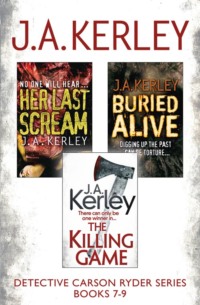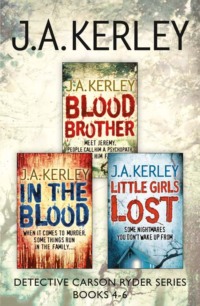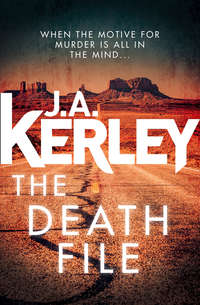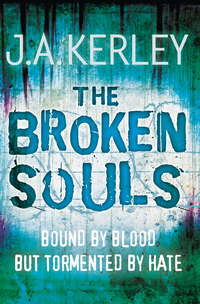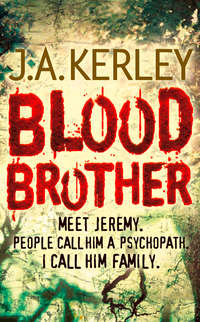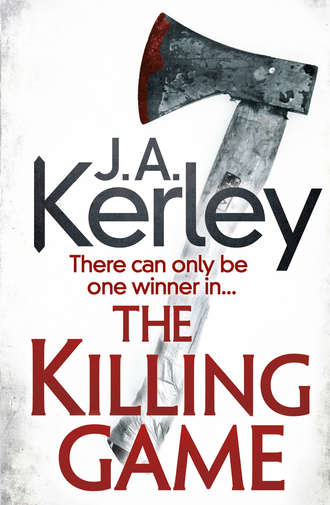
Полная версия
The Killing Game
“Sure, Doctor. Some poor kids probably have nightmares and things. I know I would if I’d started life like that.”
Szekely began to speak but closed her mouth. The intern reporter had most likely grown up in a bright home with a green lawn and white picket fence. Enjoyed large and healthy meals each day. Generations of adoring family would have surrounded and coddled her. Her bedroom held toys and dolls and lace curtains, cool in summer and warm in winter. She would have spoken at two years of age, walked at three, been in school at five. Interacting with her fellow humans would have been as natural as giggling.
Could the young woman in any way comprehend what happened to children who grew up in a box with no human interaction? Wallowing in their excretions? Feeding on slop, like hogs? Could the pretty young thing ever envision what some of these broken children became as they aged? It was an impossible task. Szekely knew; she had been studying such children for years and was herself still capable of awe at the horrors inflicted on the innocent.
Szekely looked into the eyes of the reporter, the woman’s pencil now tapping the notepad. She was impatient to get to her next assignment, something to do with a circus in town.
“I’ll see you to the door,” Szekely said, standing.
They strode along the hall to the reception area and out the door into a bright Gulf Coast morning. A faux-wood plaque on the side of the red-brick building said Coastways Behavioral Medicine, LLC. Beneath it were the names of several psychologists including Dr Sonia Szekely. Under Szekely’s banner a small sign proclaimed EEOSA.
The reporter thanked Szekely and promised to send a copy of the article when it was out, a month perhaps, or more, depending on how much of the paper would be devoted to sporting triumphs.
“Remember,” Szekely called to the woman’s departing back, “it’s not history. It lives with us today.”
But the reporter had already hidden inside her iPod. Szekely shook her head and watched the woman’s tiny silver Honda buzz from the lot. She was turning toward the building when her eyes fell across a familiar face in an automobile near the front of the lot. The face suddenly looked embarrassed and sank two inches, as if trying to hide below the dashboard.
Szekely waved and walked close. “Goodness, Ema, what are you doing here?”
“I, uh, was out driving and—”
“Needed to see me about something?”
The woman’s fingers drummed a nervous tattoo on the wheel. She started to speak, swallowed.
Szekely frowned. “Is anything wrong, Ema?”
“No … I mean, I uh … guess I just need some reassurance.” A sigh and a self-deprecating smile. “Like always, Doctor.”
Szekely grinned and nodded toward the offices. “I’ve got a group session at one, Ema. I’m yours until then. How about we grab some coffee and have a nice girl-to-girl chat? That should make things better.”
Chapter 13
Night had fallen. Gregory sat in his living room surrounded by pages he’d gathered from Google, copies of everything available on Chief Baggs, mostly mentions in newspaper articles. The data focused on Baggs the cop, which was fine, but Gregory wanted more: what centered the entity known as Carleton T. Baggs? Where did he live? How did he live? What patterns could be discerned in his life?
If it’s seven fifteen on a Tuesday evening in summer, Gregory thought, making notes as he went, where, statistically, would I expect to find Carleton T. Baggs?
When he’d pulled all the newspaper data on Baggs, Gregory frowned at the paucity of his file and considered where other information might be found. On a whim he tried YouTube, entering Baggs, Chief, Mobile, Alabama, Police.
Nothing.
But there was a hit on Mobile Alabama Police, one titled Det. Carson Ryder Lauded for Bravery. It had been logged into the system a couple days before by someone named Janet Wing. Gregory expanded the screen and hit Play.
He leaned back in his chair as the camera panned ranks of cops in a large room, some in uniform, others in street clothes, slack-jawed droolers getting taxpayer money to sit on their asses. The camera zoomed in on a slender, suited man standing from a front seat as someone called his name, Detective Carson Ryder. Ryder seemed about six feet tall, dark hair falling over his ears.
Gregory whispered “troglodyte” as Ryder approached the podium, his suit looking like it had cost fifty bucks with tie and shoes thrown in. The haircut was a ten-minute, ten-dollar job by a barber named Mort or Ralph. The knot of the Ryder-ape’s tie would have been more at home on a bowline.
But when the man forswore the step-stairs to the stage and took the half-meter jump as a natural extension of his stride, troglodyte suddenly didn’t fit. The man moved with a fluidity Gregory had noted in athletes, though nothing about him seemed particularly athletic save for shoulders a bit wider than the norm.
The man stepped into white light beside a podium. The camera panned left and Gregory’s breath froze in his throat. Baggs was the voice who had summoned Ryder to the podium. They touched palms in an imitation handshake and Baggs handed Ryder a framed certificate.
Gregory froze the video and studied his adversary, Baggs, a large man with veiled eyes and mottled skin, attempting to hide encroaching baldness with a comb-over, which merely served to highlight the condition. He looked stupid, which Gregory had expected, needing only a line of drool down his chin to complete the picture.
This is my quarry, Gregory thought as his heart increased its rhythm, burning the image in his brain. This man is dead. Gregory re-started the video, hoping for additional footage of Baggs.
But he found something more interesting. When the Ryder-cop took the certificate, the camera image widened to show an audience leaping to their feet with hands pounding. Ryder studied the crowd, then commenced what seemed to be a ritualized step-pattern, holding the award aloft. Was Ryder dancing? His action further inflamed the crowd. Somewhere in the room chanting started, the words indiscernible but clearly known by everyone.
Braka ros n’da hasun …
I faw telawan telawon
When Ryder finally stepped from the stage he was enveloped in a sea of cops. Baggs stood alone on the stage, looking shrunken, uncomfortable and even more stupid.
Puzzled by the contrast, Gregory did a Google search on Carson Ryder, discovering he’d been the youngest patrol officer to make detective, recipient of a dozen commendations for bravery and resourcefulness. He’d been an Officer of the Year when in uniform, had twice been Detective of the Year. Archived photos showed Ryder receiving commendations from the last four mayors, three chiefs of police, and two citizens’ groups.
Gregory closed his eyes and saw Ryder holding his victory citation high. He added the applause. The cheers. The chanting. The rush of the crowd when Ryder stepped from the stage. There could be only one conclusion …
The man named Carson Ryder was the Blue Tribe’s Warrior.
Though the Chief was the MPD’s head, Gregory realized, a warrior was the department’s heart. Baggs himself was meaningless, as replaceable as a hat. It showed in his face when the crowd ignored him to pay cheering tribute to Ryder.
It was Ryder who was irreplaceable. Thus it was Ryder who had to die. But Ryder couldn’t die in battle. That would turn him into a martyr. He had to die in the worst way possible for a warrior …
In shame.
Gregory turned his attention back to YouTube, saw one remaining video under Mobile Police Department. Four minutes and thirty-nine seconds in length, it carried the title of Random Nightmares. Gregory pressed Play.
Five minutes later Gregory had a perfect plan to destroy Carson Ryder.
Heart racing like he’d just found a cat in the trap, sweat glistening across his palms, Gregory stood and held his hands high, mimicking Ryder’s dance steps at the ceremony and aping the MPD’s praise chant.
“I faw telawan telawon … I faw telawan telawon …”
Harry and I spent several days working a case, trying to put the hammer down on a dope dealer who thought a nine-millimeter was the best way to deal with competition, a not-uncommon career move in the illicit-substances biz. We’d returned at six to read the newspaper. Alcohol was not allowed in the shop, which was why our beer cans were hidden in foam jackets.
Footsteps behind me turned into the Buddha walking our way in a three-piece suit, a smile on his round face, his head as bald as a melon: Don Shumuchuru.
“Don,” I said. “Great to hear your mom’s doing better.”
“They adjusted her meds and she’s like a new person. Thanks for handling the classes. And don’t worry, I’m back in the saddle again.”
“Pardon?”
“I’ll pick up on the sessions.” He grinned. “You just got two nights a week of your life returned, buddy.”
“Uh, thanks Don …”
Don shot me a thumbs up and retreated. Harry was staring at me across his coffee mug, an eyebrow cocked in interest.
“What?” I said to my partner.
“Looks like school’s out,” he said.
Chapter 14
Gregory was cross-legged on his living-room floor. He’d done an hour of Bowflex and taken a shower. Supper was protein powder with honey and three slices of organic wholewheat bread.
Beside him was his favorite object, a compound bow, its profile resembling a mechanical bat with outstretched wings. It had a sixty-pound pull that fired an arrow at over two hundred miles an hour. Gregory had asked the decorator if the bow might be hung over the fireplace in place of the scribble-painting, but the man’s face had told Gregory he was in one of those areas where he lacked understanding.
The bow had been a thirteenth-birthday gift from his stepfather so the two could enjoy deer season together. Gregory’s stepfather had grown up on a farm in central Alabama and when his parents died had inherited the six-hundred-acre tract. By that time he was living and working in Mobile, but he’d kept the farm, leasing it to tenant farmers and hunting in the two-hundred-acre woods. Whenever they went out together, the old man was always blabbing about how much he enjoyed hunting, loved the woods, loved the streams.
Over there, son, is where my father bagged a fourteen-point buck. How I loved to walk these woods with him, Gregory, and I wish I could have just one of those days back …
A tear rolling down the old man’s cheek, weird.
Gregory was fascinated by the word Love. The morons used it as if it meant so much, but also to mean very little. People said they loved other people. Some said they loved their automobiles. Others used the exact same word about canaries, or cats or dogs. People loved Mexican food. Or their shoes. Or a paint color. It was another trait of the morons that they had no solid meaning for a word they used like water.
Gregory had been to funerals where the word seemed to dominate … yayaya loved his children, yayayaya, a lover of humanity yayayaya we will miss his love yayayaya … and all the morons who had loved the piece of dead stuff laying in the box would cry and howl and moan and act like death had happened to them. The person was gone: find someone else to do what they did for you.
But no, it was Love, death, pain, love death pain … which was really pretty interesting when you thought about it.
Despite its liquid character, Love somehow had a big influence on the idiots, and Gregory knew whatever the word meant to the morons, it must have been something like what he applied to the bow. Probably even more: people said they would die for love, but there was no way Gregory would fucking die for the bow. It was, after all, just wood and metal and plastic. If it was him or the bow, the bow would be out the window justlikethat.
Gregory stopped thinking about Love – an un- understandable concept – and picked up his bow. He and his new gift had been inseparable for weeks, the boy caring less for hunting with his stepfather – and listening to all those stories – than waiting for the old man to go on some errand so Gregory could hide in the woods and shoot at everything that came into view: birds, rabbits, groundhogs, dogs …
Gregory had come close to being in trouble once when he shot a neighbor’s dog, but claimed he’d thought the yellow Lab was a coyote.
“Yellow Labs don’t look nothing like a coyote,” the neighbor had said. “That boy’s lyin’ through his teeth.”
“You hold it right there,” Gregory’s stepfather said. “Anyone can make a mistake.”
“My dog got shot twice, once in the hindquarters and once in the head. I think that boy crippled him for fun and killed him when he got bored.”
“You hold your tongue, now—”
“That dead-face kid may be some kind of mental wizard but that don’t make him right in the head, everyone in the county knows it too. You owe me five hundred bucks for the dog or I’m bringin’ the sheriff in.”
Gregory’s father had said nothing, but the bow disappeared. Gregory regained it two weeks later by telling his stepfather how much he loved hunting, especially with you and could we do it some more real soon? Please, Daddy?
He grinned at the memory. Call the limpy old fucker Daddy and Gregory could get anything he wanted, kind of like pulling Ema’s strings.
Kayla Ballard shook her strawberry-blonde hair over her shoulders and patted her face with a bandana, the air in the university’s greenhouse dense with humidity. She studied rows of five-inch-tall cotton plants in individual planters, making notes on their size and health. Each plant was graded on eight points and turned into statistical models.
“You getting all this, Kayla?” fellow student Harold Barkley asked.
“My 4-H project was more involved,” Kayla answered, hefting a heavy tray of plants like it was a shoebox. “This is simple.”
Barkley shook his head as he studied columns of figures he’d spend all night crunching. “Your senior 4-H project took this much math?”
“It wasn’t the senior project, Harold, it was the junior one. The senior one was a lot more complicated.”
Barkley pretended to make sobbing noises. Kayla’s cell phone rang and she plucked it from the back pocket of her jeans. She noted the caller and the smile broadened on her face.
“Hi, Daddy.” She covered the phone with her hand. “Run along, Harold. I’ll catch you tomorrow.”
“In class it’s us who are trying to catch you, Ballard.”
Kayla grinned and returned to her cell phone. “Yep, I’m here in the greenhouse, Daddy. Guess what? I got voted president of the ag club and I wasn’t even running …”
The pair talked for ten minutes and would talk again near ten p.m., before Kayla fell into bed. Kayla missed her father terribly. They had been inseparable since her mother passed away when she was seven, the victim of a drunk driver.
“… all right, Daddy. I’m heading to the dorm to start calculating all this stuff. I love you.”
Harold Barkley walked toward the dorms. Kayla would beat him on her bike, riding the wide sidewalk that served both pedestrians and bikers.
She rounded a bend to find the same curious sight she’d noticed for the second day in a row: a man staring into the trees with binoculars. A birdwatcher, she figured, goofy-looking in that big floppy hat and sunglasses. Yesterday she couldn’t tell if it was a guy or girl until she got closer. A guy, could have been twenty, could have been fifty, from all she could see of him.
Had a game leg, too. Favored it and carried a cane, sticking it under his arm to scan the terrain. All that to watch birds, which meant a person with dedication. As Kayla closed in, the glasses seemed to turn her way, then drift back to the trees. Kayla felt a camaraderie with the birder, out practicing his hobby on a hot evening like this.
Good for you, buddy, she thought, smiling and waving as she sped past.
Chapter 15
I looked at the classroom clock, almost nine already. How did the time fly by so fast? “OK, let’s wrap things up,” I said. “Questions?”
“Can we go back to the sociopath issue a bit?” Jason Kellogg said.
We’d spent two hours on securing crime scenes and its protocols – vital information, but nowhere near as tasty as discussing motivations of the Hillside Strangler or the Night Stalker. When you’ve eaten your cauliflower, you’ve earned a slice of pie.
“Sure,” I said. “Go ahead.”
“You mentioned the sociopath’s need for control. Why is control such a big deal?”
“Holliday has book learning in that area,” I said. “Let’s give her a shot.”
“Get it, girl,” Sanchez grinned. “School us.”
Holliday swallowed hard. She was in the front row and turned to address the bulk of the class. “Uh, well, many professionals think that by being controlling and manipulative, sociopaths reinforce their sense of superiority.”
Holliday looked at me. I said, “Keep going.”
“They’re in charge, ergo they’re the most powerful person in the relationship. Conversely, by being stupid enough to be manipulated, the other person is diminished.”
Jason Kellogg spoke up. “Why don’t people get tired of being jerked around?”
“The manipulation can be so subtle it’s not noticed, especially with intelligent socios. It’s an interesting problem to them – a project – pressing someone’s buttons without leaving fingerprints on the buttons.”
“Let me step in,” I said. “I watched a sociopath named Bobby Lee Crayline be hypnotized. He was dangerous to the extreme, guards in attendance. A guard ordered Crayline to sit for the procedure. He didn’t. When ordered to sit again, Crayline crouched slightly on bended knees. Without a second thought, the guard pushed the chair beneath Crayline’s butt and he sat.”
“So?” Pendel yawned. “The guard ordered the guy to sit and he sat.”
“It’s different,” Terrell Birdly said. “Crayline made the guard slide the chair under his ass.”
Pendel scowled. “Again, so what? The guy sat like he was told.”
A tittering, most of the class getting it. “You’re missing it, Wilbert,” Birdly said. “Crayline didn’t sit until the guard was manipulated into repositioning the chair.”
I nodded. “It was a tiny moment of meaningless control, but in Bobby Lee Crayline’s mind, it proved his superiority.”
Pendel shook his head and crossed his arms, refusing to believe it. Kellogg had his hand up. “You can hypnotize a sociopath?” he asked.
“Almost anyone is subject to hypnosis by a professional, though it’s easier to hypnotize subjects who want to be hypnotized or who have been prepared through a previous suggestion. Hypnosis isn’t something sociopaths generally like, because it’s putting someone else in control. Still, it can happen.” I shot a glance at the clock. “OK, good job. See you next time.”
Everyone started putting away their texts and electronic thingies except Holliday, who ambled towards me. She passed Pendel, who gave her a lascivious grin and whispered, “Gonna go suck teacher’s dick for an A?”
I heard every word; the poor geek couldn’t even whisper right.
“Grow up, Willy,” Holliday said, not looking at him. Two seconds later she was in front of me.
“You learned your lessons well, Wendy,” I said. “Good answers.”
“Thank you. Uh, listen Detective Ryder, I mean Carson, I was wondering if you might want to—”
“Well, well,” a big voice boomed. “I’d heard there was an encore performance.” Harry was leaning in the doorway, a Cheshire-cat grin on his face.
“I’ll get back to you,” Wendy said. “Next class maybe.” She scooted past Harry, saying hi. My partner spent a couple of self-indulgent seconds watching Holliday glide down the hall before turning to me.
“School’s still in session?”
I shrugged. “I figured I started it, so I should finish it. That’s the way it’s supposed to go, right?”
“I saw Shumuchuru in the property room laughing like he’d hit the daily double. He said you’d promised to take his next two all-night stakeouts if he let you finish teaching the course.”
Snitch. I said, “Um …”
“So how much of your return to the classroom is due to that pretty little lady who just walked away?”
Harry had been my best friend for a decade. He knew everything about me, including things I either didn’t know or didn’t acknowledge.
“Ten per cent,” I sighed. “Maybe fifteen.”
“And the other eighty-five to ninety per cent?”
“I actually enjoy the class.”
“Which should be celebrated,” Harry said. “I’m thinking beer.”
We settled on a cheapie bar a few blocks distant and I finished putting my materials away. We were heading out the door when my cell trilled, screen showing Tom Mason.
“You still at the academy, Carson?” Tom asked.
“I’ve been arguing pedagogical theory with an fellow academician, Tom,” I said, winking at Harry. “What can Professor Nautilus and I do for you?”
“Harry’s there? Good. A body was just found along a bike path near there, by the university …”
Chapter 16
Harry’d parked in a lot one building over so we jumped in my truck and stuck the flasher to the roof. Three heart-pounding minutes later I sailed past a pair of cruisers, uniformed officers setting flares to divert traffic.
A hundred feet further I saw scene techs circling an object on the ground and pulled over. The area was lit by headlamps from the cruisers and we felt a rush of relief at seeing Holliday at the periphery, looking unsteady but alive. She had a bright orange helmet in one hand, the other was holding up a bicycle.
Конец ознакомительного фрагмента.
Текст предоставлен ООО «ЛитРес».
Прочитайте эту книгу целиком, купив полную легальную версию на ЛитРес.
Безопасно оплатить книгу можно банковской картой Visa, MasterCard, Maestro, со счета мобильного телефона, с платежного терминала, в салоне МТС или Связной, через PayPal, WebMoney, Яндекс.Деньги, QIWI Кошелек, бонусными картами или другим удобным Вам способом.


